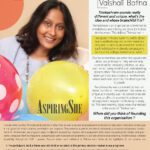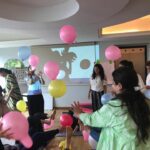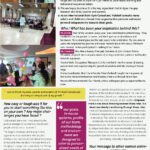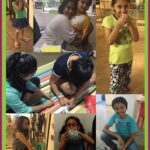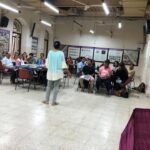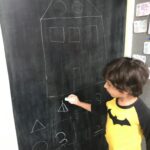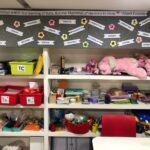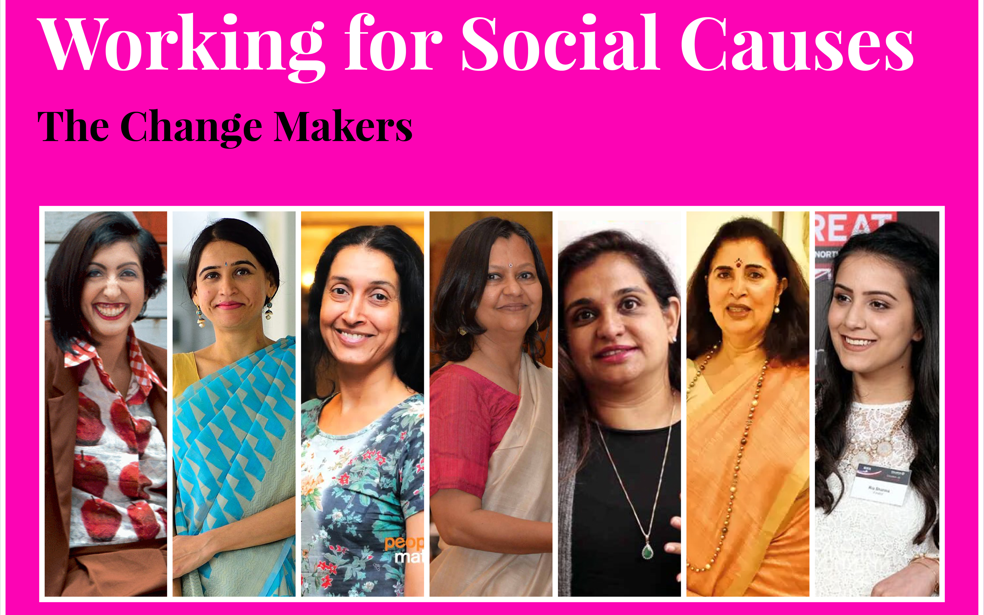
Is Worry Necessary To Live? – Vaishali Bafna Founder of Thinkashram Centre for learning and growth.
This article explains worry becoming the most essential ingredient of learning, growing and living and shares a way to overcome it.
Vaishali Bafna
Educationist, International Brain Gym Consultant & Instructor, Education Kinesiologist,
Founder of Thinkashram Centre for learning and growth
With changing lifestyles, we have evolved and adapted ourselves to a new pattern of thought: “I need to worry in order to live to my satisfaction.” Worry has become a survival tool instead of a threat. We use this tool to expose ourselves to constant threat and keep us in survival mode so that it necessitates the actions needed for us to move forward in our lives.
Worry has permeated into every aspect of our lives. We worry about our work, careers, hobbies, relationships, children, social settings, future, past experiences and even about how to spend our free time. It has gone beyond becoming a habit or addiction; it has become an integral part of each of us, so much so, that it is easily passing down to our future generations as genetic inheritance.
A Mindful Soul is a Worry-Free Soul
While the adults have chosen to be driven by this diabolical thought, it is disheartening to see the new age childhood so inflicted by it, not giving children the choice of free thinking. Children barely learn to move and explore at the time when they are exposed to unfathomable learning targets.
They find themselves running from one skill class to another, one tuition to another, one activity to another chasing the finishing line that they can barely understand, gauge or even see. All parents feel that this is essential exposure but can one think from the mind of a child who thrives on feeling rewarded from the environment?
A child learns to sit, crawl, walk, talk, run and move in various ways by observing and imitating to be able to do what others do. In the early years, a child’s brain develops through replicating, mapping and building the different contexts of the world as he or she learns to imitate. When children are exposed to a fusillade of expected outcomes, which may not be appropriate to their developmental stage, they become confused, are unable to focus with the same zest and lose interest. What they learn over time is what they pick from such lifestyle – ‘WORRY’.
“Don’t be stuck in worries. Move to be in flow with life.”
Free movement develops mindfulness and learning develops thinking. The new age childhood is skewed where minds are pushed to think and learn but are not supported by productive movement, thus stunting the development of the brain.
Children begin to engage in structured sport activities way before engaging enough with the unstructured. They engage in cognitive learning classes with difficult targets before they develop their brain and body enough to engage with them. They learn to play musical instruments without developing the dexterity and strength for readiness. How much they learn and gain in terms of quality, no one knows; but, for sure they learn one thing – compensations.
This skewed brain development soon manifests in lack of interest, erratic behavior, socio-emotional and cognitive struggles. It is not rare to hear of a four-year-old not wanting to engage in outdoor activities, or for a student to express huge reluctance to writing. “My child is a fussy eater….My child is lazy and simply procrastinates from taking responsibility.
My teenager is unable to cope with pressure and emotions…” Parents are only left with accepting these dilemmas. Kinesiology is the promise for the present childhood. It not only enables whole brain development but more importantly, it facilitates it through goal driven movements – simple but profound and essential for the development that has somehow not been
explored enough while growing up.
Thinkashram, focusing on specialized programs anchored through mindful thinking, is an organization promoting kinesiology based education for all ages across a wide spectrum of personal and professional growth and development related objectives; it educates children and adults not only of what they want to learn but also empower them with understanding and improving their
mindfulness.
Children attend personalized programs for diverse reasons – academic, socio-emotional, behavioral – where a wholesome and multi-faceted plan secures them with a growth mindset to life instead of a worried mindset. A specialized parent-child developmental program is also offered for babies in their first year.
Private consultations are offered to teenagers and adults to facilitate them to move forward when they feel stuck in any aspect of their lives, be it for education, work, relationship, self, etc.


